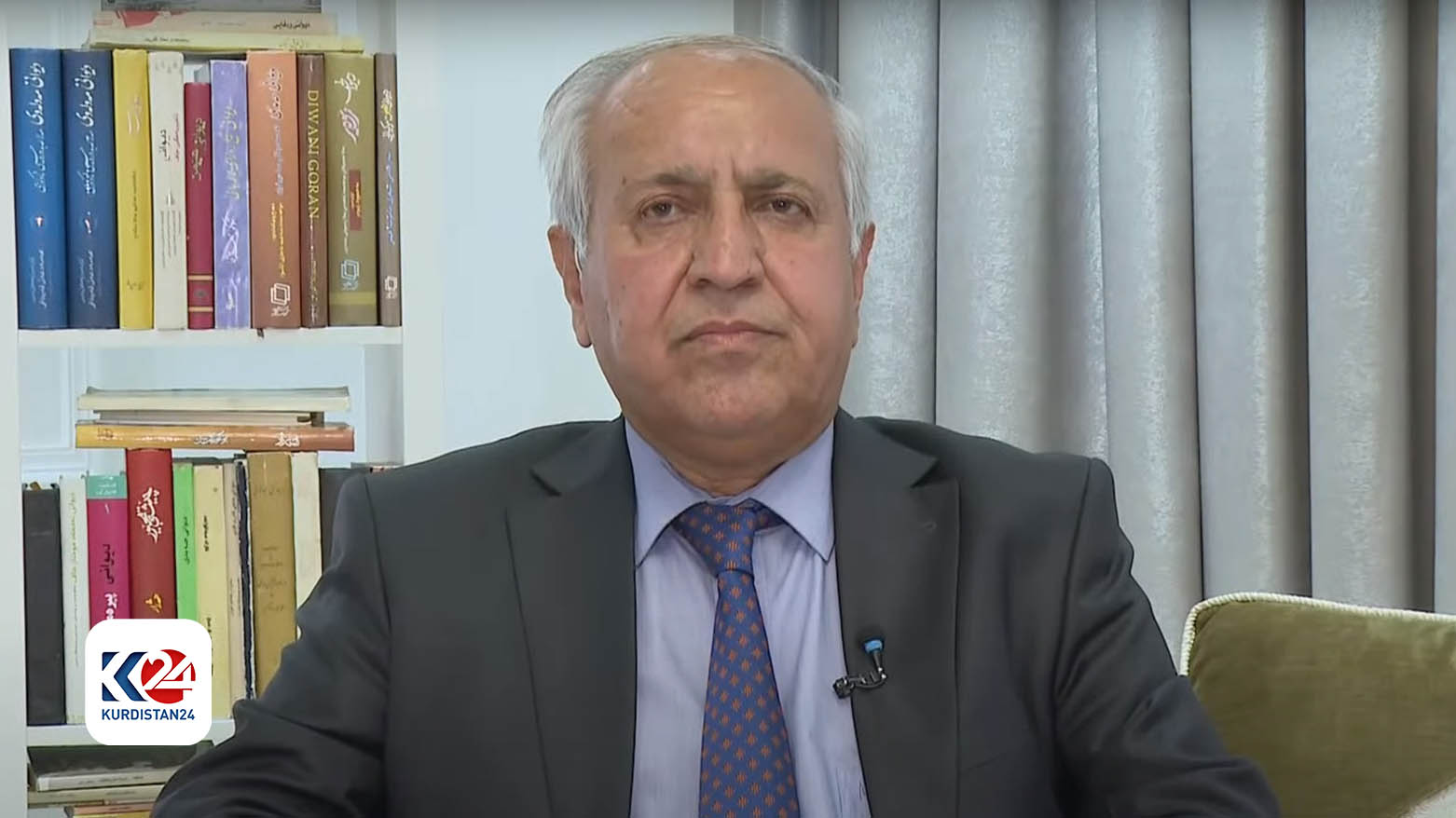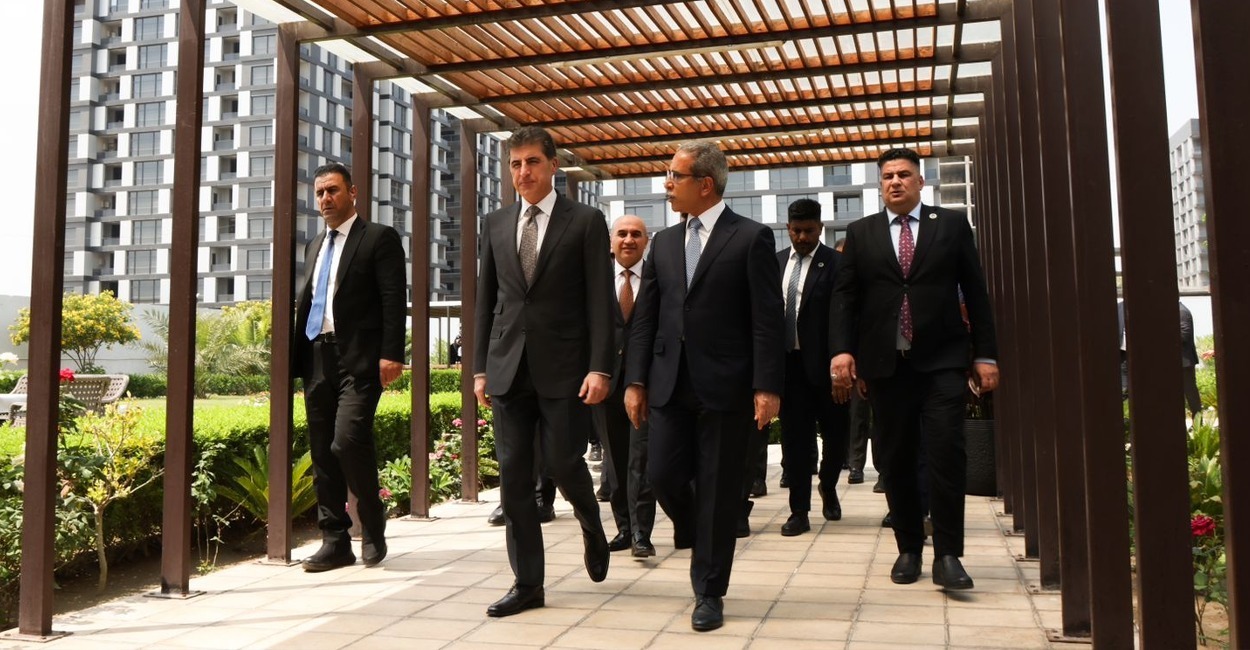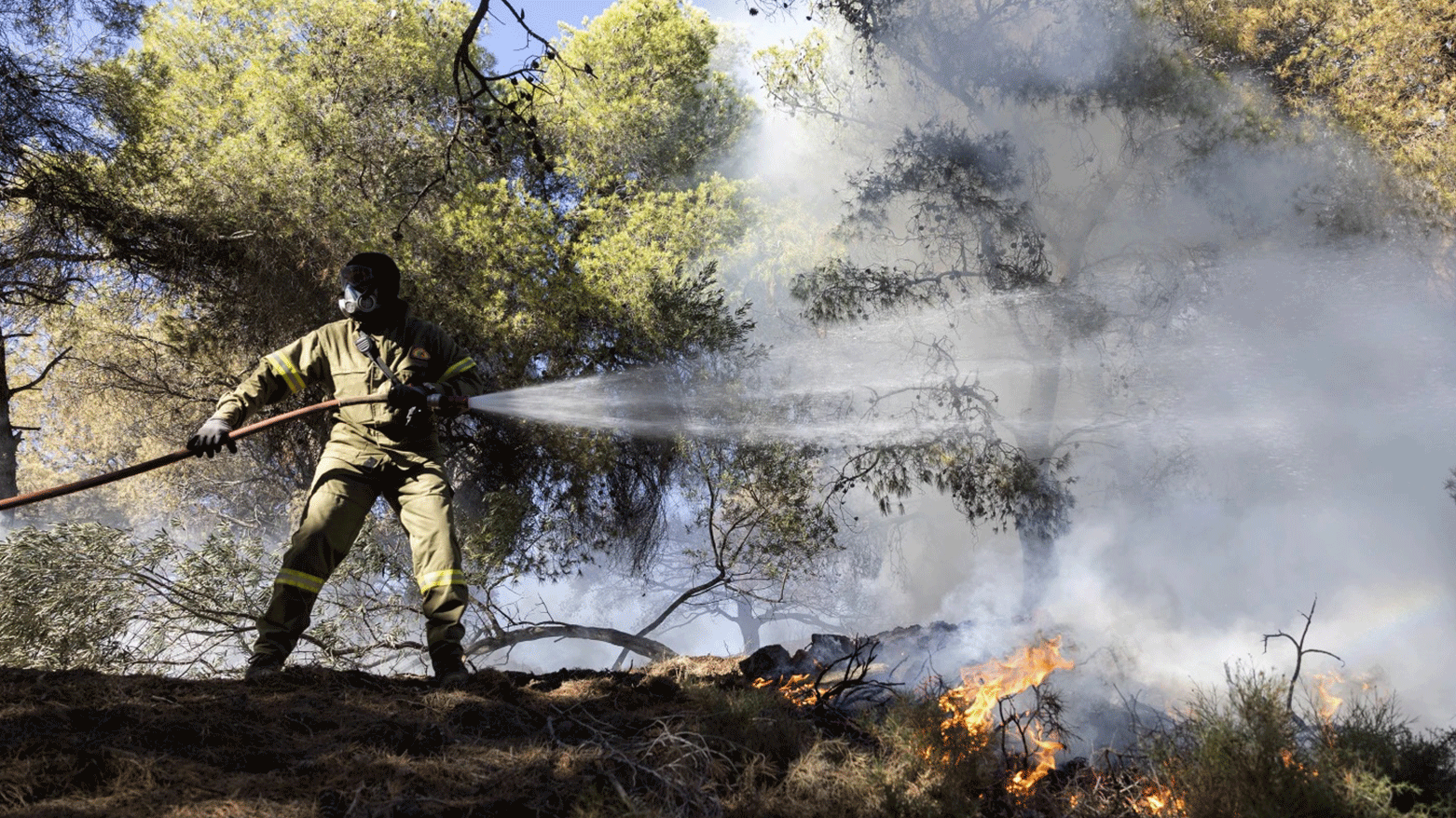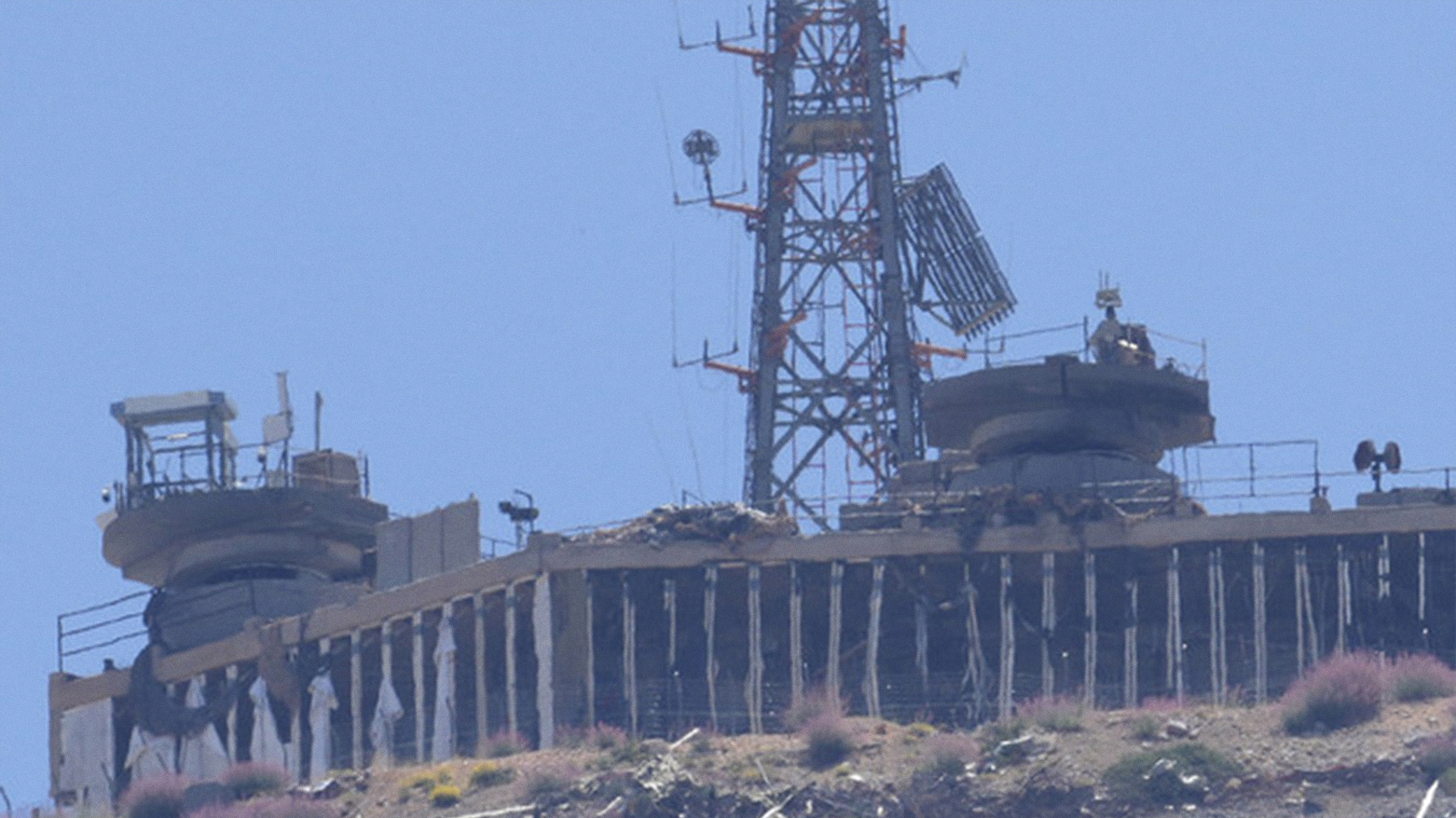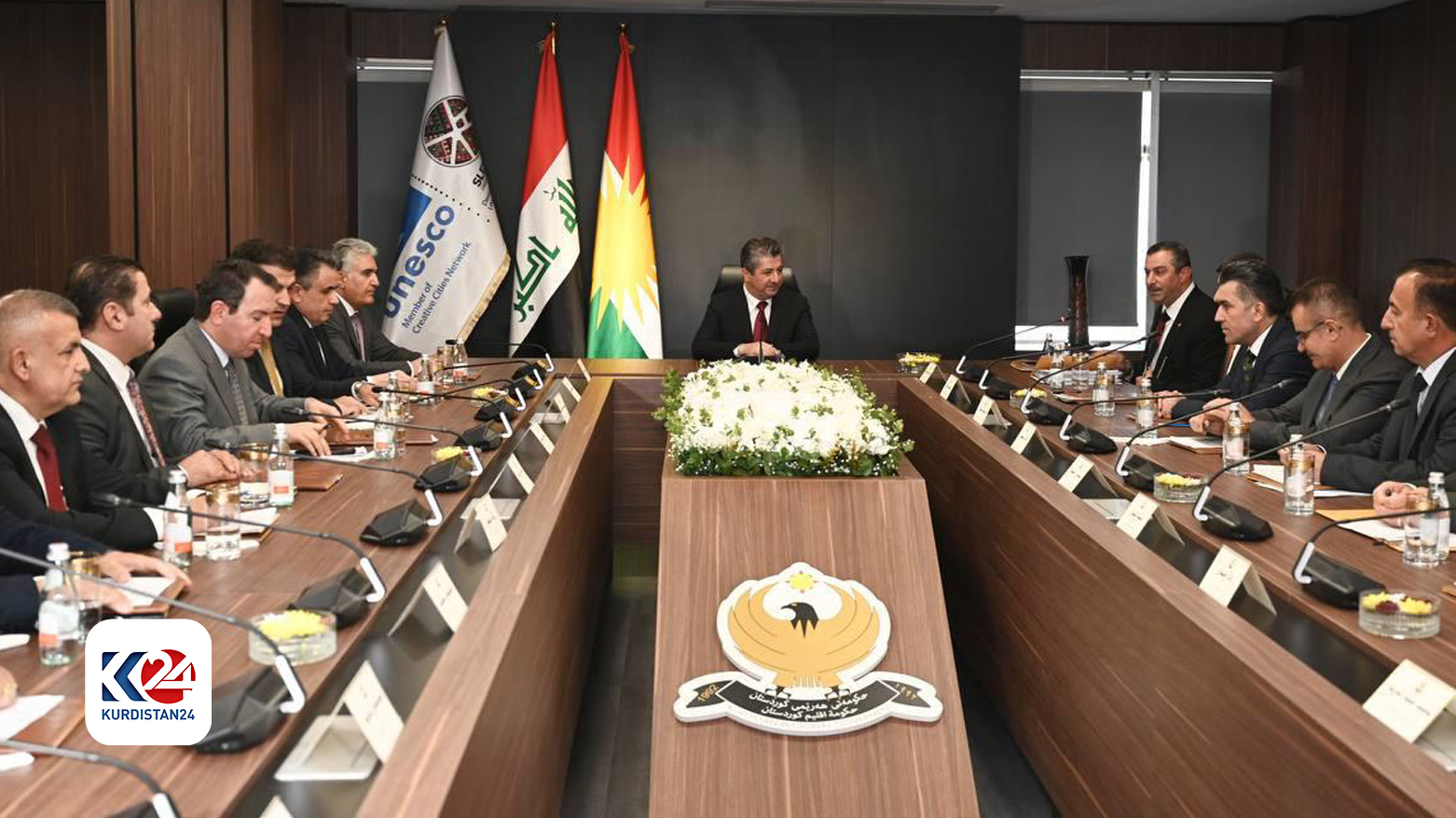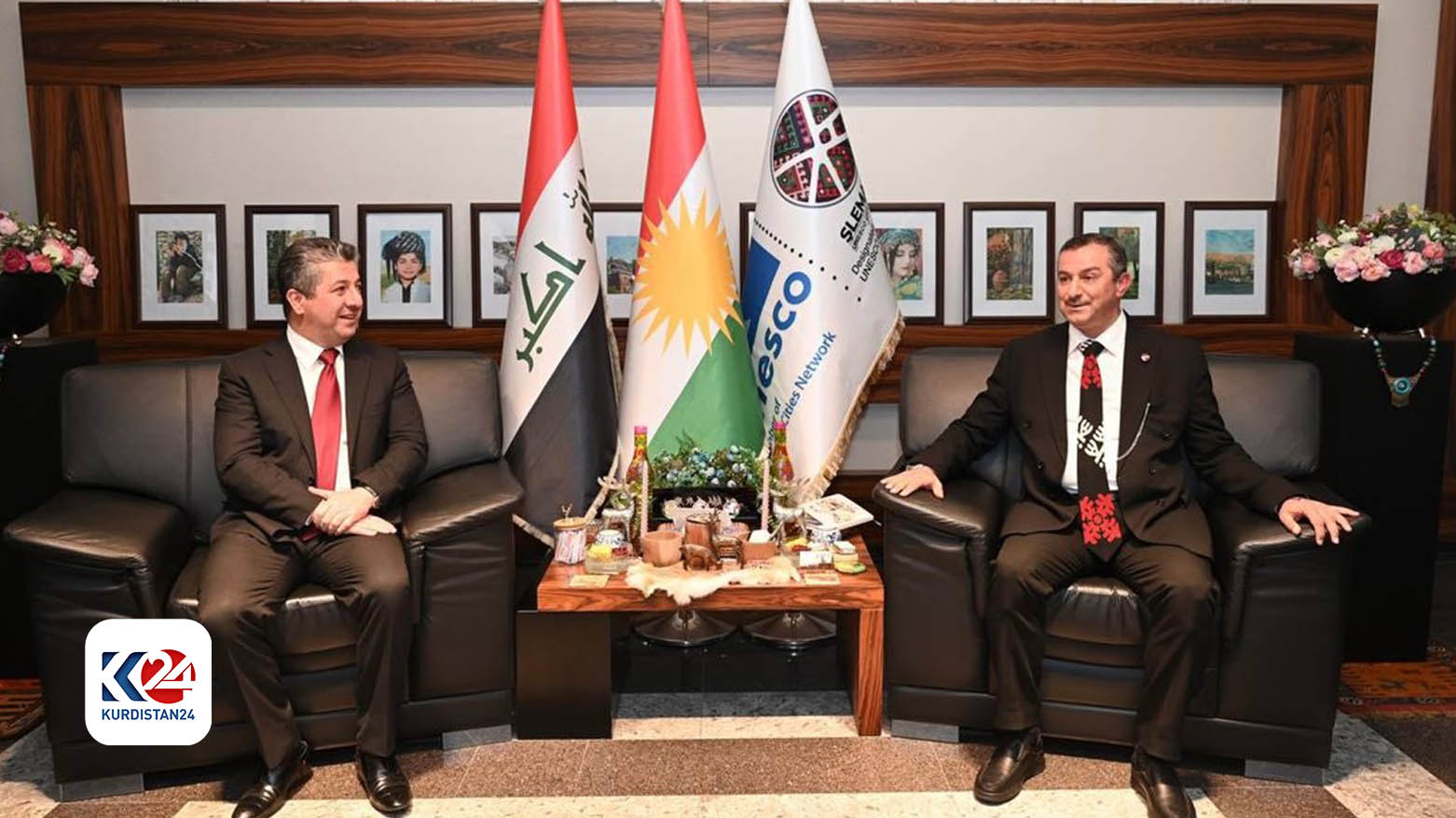Iraq's solidarity with Hezbollah intensifies amid Israel-Lebanon tensions
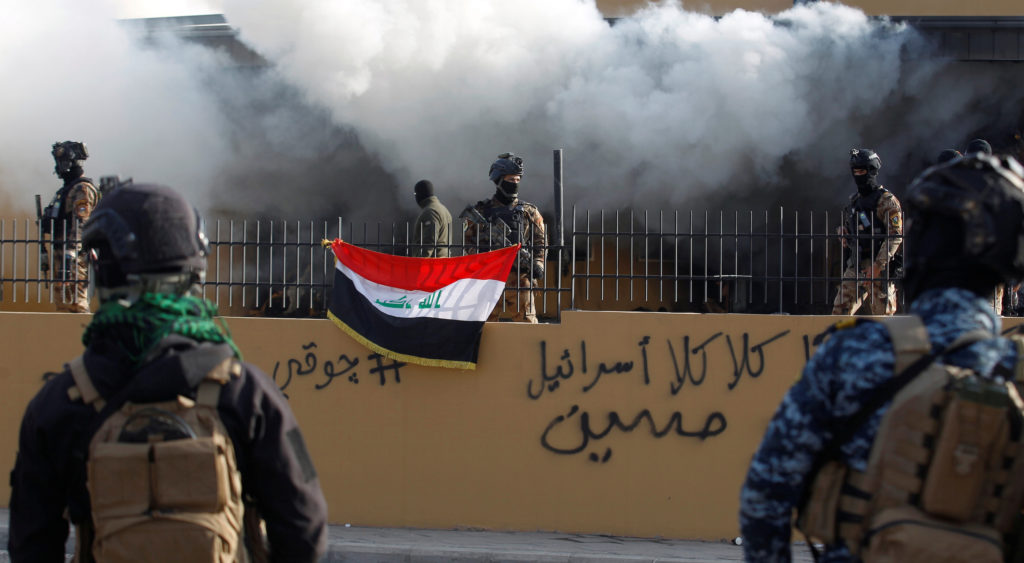
Shafaq News/ The possibility of a war breaking out between Israel and Hezbollah in southern Lebanon has become the question of the hour amid warnings of the repercussions of the Iraqi factions' participation in the country in terms of the security, economic, and even political levels.
Lebanese Hezbollah has been exchanging fire with Israel for more than eight months, in parallel with the war in Gaza. Many European and regional countries have announced their intention to evacuate their nationals from Lebanon due to the situation, indicating an escalation of the confrontations that have been ongoing for months between Israel and Hezbollah.
Israeli media had revealed that the Northern Command of the Israeli army was preparing for a large-scale attack on Lebanon and was awaiting the green light at the political level.
Despite ongoing threats from Israeli Security Minister Yoav Gallant to "wipe Lebanon off the map," the United States is striving to de-escalate the situation, fearing a major regional war.
Meanwhile, Lebanese Hezbollah confirmed that its intensified attacks along the northern border of Israel this week show Israeli leaders that an all-out war will be costly, according to Ali Damoush, a senior leader in the party.
Hezbollah's ground force is larger than Hamas', with an estimated 40,000 to 50,000 fighters, according to the Congressional Research Service. Hezbollah chief Sayyid Hassan Nasrallah had said the number of fighters Hezbollah has actually "far exceeded" 100,000. Many, including their elite Radwan Force, have years of experience fighting in Syria on behalf of the Assad regime.
"We assess that at least some "Iron Dome" will be overwhelmed," said a senior administration official.
An Israeli official said that would be more likely if Hezbollah conducted a large-scale attack principally using precision-guided weapons, which could be challenging for the system to defend against. Hezbollah has been stockpiling precision-guided munitions and missiles from Iran for years, which Israel has repeatedly raised concerns about.
In this regard, a separate US official acknowledged to CNN that in the event of a full-blown war, the support Israel will need most is additional air defense systems and Iron Dome replenishments, which the US would provide.
Iraqi security experts and strategists believed that the coming days herald the occurrence of a war that will be broader than the Gaza war due to the presence of influential regional factors, whether in terms of Hezbollah's association with factions present in Iraq, Yemen, and Syria, or Hezbollah's association with Iran.
Therefore, the participation of the Islamic Resistance in Iraq is considered possible if the situation develops between the Lebanese Hezbollah and Israel "based on the unity of arenas strategy adopted by the Islamic Resistance, in partnership with Hezbollah, Yemen's Houthi Ansarallah group, and Hamas," according to the security expert, Imad Allo.
This possibility was strengthened with the Secretary-General of the Asaib Ahl al-Haq movement, Qais al-Khazali, last Monday, warning that all US interests in Iraq and the region will be targeted if it supports any Israeli military operation against Lebanon.
In a televised address, al-Khazali stated, "If the United States continues to support this usurping entity (Israel) in its expanded operations and attacks on Lebanon and Hezbollah, America should know that all its interests in the region and Iraq will be at risk."
Support Lebanon
A member of the Security and Defense Committee in the Iraqi House of Representatives, Allawi Nima al-Bandawi, affirmed to Shafaq News that "Iraq is part of the Arab nation, and the position of the Iraqi people and government is firm in defending the issues of the region and the Arab nation," noting that "the Arab countries must also confront the arrogance of the Israeli Zionists who threaten the security of Lebanon."
"A strong stance will be taken by all political forces and resistance factions to support the Lebanese Arab people in the event of any attack," he added.
The member of the State Administration Coalition stated that "The House of Representatives supports the directions of the government, represented by all the Iraqi people, whether Sunnis, Shiites, Kurds, the rest of the minorities, as well as the honorable resistance factions. I believe that the government will have an official position that we will support in all its directions."
"I advise Israel not to get involved with Lebanon because it will drag the region into unnecessary conflicts," said al-Bandawi, giving an "advice" to Israel.
For its part, the Iraqi government refused to state its position on any future escalation between Lebanon and Israel and the participation of Iraqi factions in this war if it occurs.
Consequences
Security expert Imad Allo told Shafaq News Agency, "If the United States continues to provide support and assistance to the Zionist forces in the event of their clash with Hezbollah, the American forces installations in Iraq and Syria may be subjected to strikes by the Islamic Resistance, and in return there will be possible reactions from American or Zionist military aviation, which will affect the internal situation in Iraq."
Moreover, Allo believed that "the expansion of the war waged by the Zionist forces against the Palestinian people in Gaza could lead to dire consequences and threaten regional and international security and peace. This is what was stated by most observers and analysts, as well as Western politicians, whether at the level of the European Union or international organizations affiliated with the United Nations, in addition to the warnings of some American politicians that the expansion of the war may drag the region into a comprehensive war, which will affect energy supplies and commercial transportation lines in the Red Sea, the Arabian Gulf, and the Mediterranean."
"It is worth noting that the Islamic Resistance in Iraq participated with Yemen's Houthi Ansarallah group in directing strikes on naval vessels and ships in the Mediterranean. Therefore, this issue constitutes a great danger, and the United States ois trying - according to its claims - to put pressure on the Zionist entity and the Netanyahu government in order not to succumb to calls for launching an attack on southern Lebanon," he added.
The US Secretary of Defense Lloyd Austin stated, "We're urgently seeking a diplomatic agreement that restores lasting calm to Israel's northern border and enables civilians to return safely to their homes on both sides of the Israel-Lebanon border."
"Lebanese Hezbollah's provocations threaten to drag the Israeli and Lebanese people into a war that they do not want, and such a war would be a catastrophe for Lebanon, and it would be devastating for innocent Israeli and Lebanese civilians," Austin confirmed at the beginning of his meeting with Israeli Defense Minister Yoav Gallant at the Pentagon.
The mutual bombardment led to the evacuation of tens of thousands of people from areas on both sides of the border, and its escalation in the past few weeks raised fears of an all-out war between Israel and the Hezbollah group.
Complex Crisis
France is extremely concerned by the gravity of the situation in Lebanon, said the French foreign ministry, adding that it called on parties to exercise restraint.
The strategic expert, Dr. Ahmed Al-Sharifi, believed that "the negotiation stage has been skipped in light of the failure of many attempts, including the French attempt. We are closer now to the possibility of war breaking out between Israel and Hezbollah, and the coming days herald the occurrence of the clash."
Al-Sharifi detailed the nature of this war to Shafaq News Agency by saying, "If the war in Gaza is restricted by what is called (rules of engagement) and (special operations), then the war in Lebanon will be broader and more comprehensive due to the danger of the front called the "northern front," and the influential regional factors, whether in terms of Hezbollah's association with factions present in Iraq, Yemen, and Syria, or Hezbollah's association with Iran. If war occurred and there was pressure on Hezbollah, it is not unlikely that the factions would participate in it."
"In the State Administration Coalition, the framework is what controls the political path and the government. Qais al-Khazali's speech was clear that we will target American interests, whether in Iraq or the region if a clash occurs. Therefore, the alignment is clear that Iraq will participate," he stated.
Al-Sharifi explained, "If we address the dimensions of the issue, it is not unlikely that there will be operations from Iran if Hezbollah and Iraq participate, realizing that dropping their arms may directly threaten it. Therefore, the harbingers of a regional war have become very clear, and this war is not devoid of international interference."
As far as Iraq is concerned, "The threat is not limited to Iraq being an arena for a new conflict only, but rather the step lies in the region where the conflict is taking place. There is a high possibility that the situation in the Hormuz and Bab al-Mandab Straits will become hotter, and they may even be cut off if Iran participates. This means that Iraq's oil-dependent rentier economy may be harmed," according to Al-Sharifi.
He affirmed, "This means that we will have difficulty even fulfilling the state's obligations regarding the salaries of employees, retirees, and social care because of the rentier economy that depends on the export of oil," noting that "if we face a problem in exporting oil, the issue will be very complicated."
In addition, he said that "Iraq has established the Basra-Aqabah oil pipeline to continue the work through it and across the Red Sea and the Mediterranean basin, in the event of a Gulf crisis that leads to the closure of the straits and affects the export of oil through the Gulf, as there will be ports that allow Iraq to continue exporting, maintaining the momentum of its economic resources. However, the Aqaba port did not work, and the pipeline towards Turkiye is limited and impermeable."
Al-Sharifi further noted, "Before its formation, Al-Sudani's government made pledges to the international community, represented by the United Nations and the American ambassador, and to public opinion and the Iraqi street, on the issue of combating corruption, providing services, etc. These pledges were not at the required level, in addition to the pledges made to the national partners in the State Administration Coalition, but neither did the Kurds get their rights, nor did the Sunnis achieve their ambitions."
The strategic expert concluded by saying, "Iraq is facing a complex crisis in which we do not rule out the security and military pressure, given that Iraq is an arena for settling scores. The economic pressure stems from the difficulty of exporting oil, while the political pressure arises from the potential collapse of the government."

